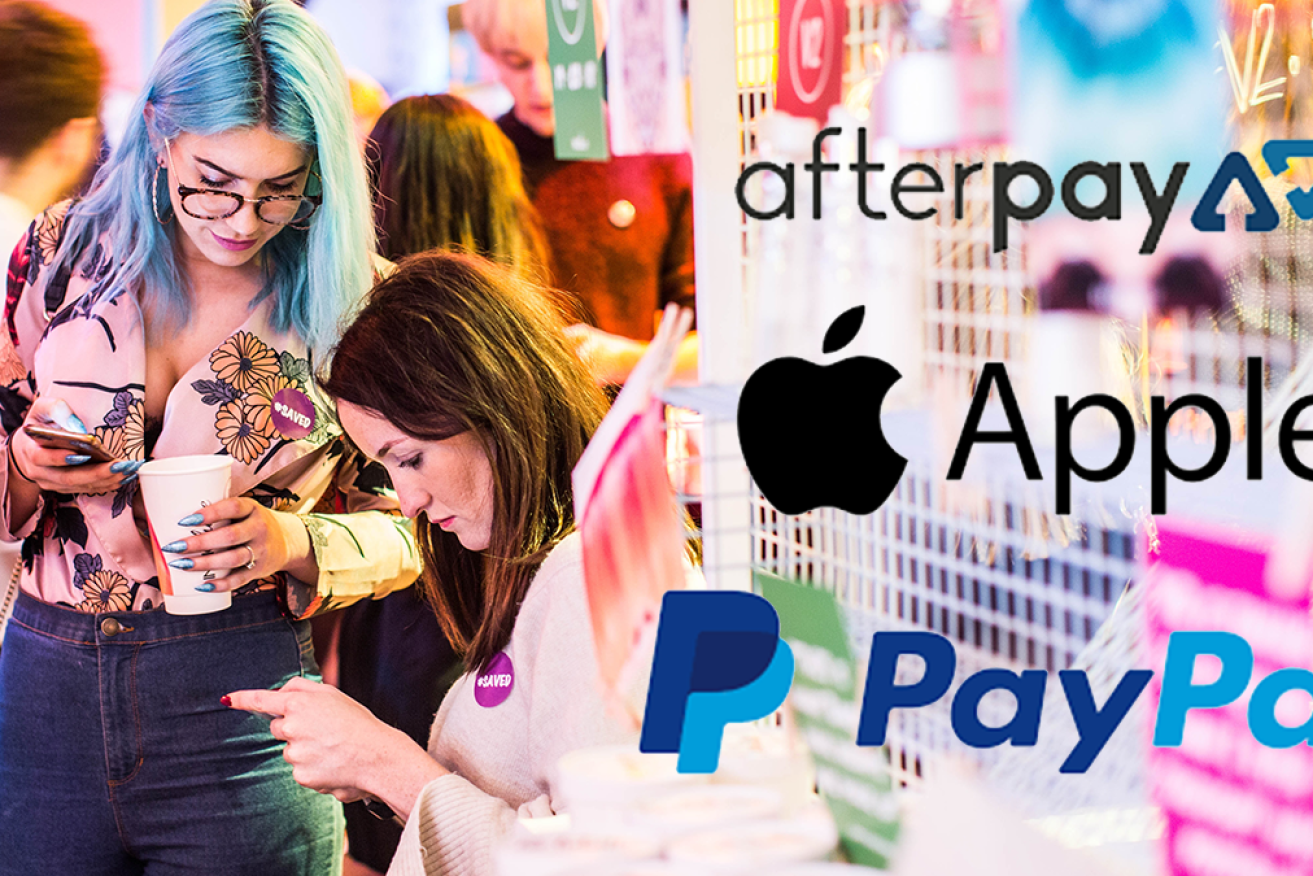Afterpay under pressure as Apple and PayPal join buy now, pay later gold rush


Buy now, pay later is about to become much more competitive. Photo: TND
Tech giants Apple and PayPal are joining the BNPL gold rush in a move that will bring fierce competition to the lightly regulated industry.
In separate moves on Wednesday, PayPal launched a BNPL (buy now, pay later) service in Australia with no late fees while Bloomberg reported Apple is soon to launch a product known internally as Apple Pay Later.
With tens of millions of customers between them and many thousands of businesses already accepting payments through their huge platforms, Apple and PayPal will make BNPL much more competitive in Australia.
And news of their expansion has already sparked a sell-off in Afterpay shares, which plummeted almost 10 per cent on Wednesday as investors digested the direct attack on the company’s business model.
It came after Australia’s major banks moved into BNPL after witnessing the slow decline of credit cards and rising popularity of Zip and Afterpay.
But the sector’s increasing influence is not without controversy.
Financial counsellors believe it’s bad news for vulnerable consumers already struggling to pay their bills, as the industry is not regulated nearly as tightly as traditional credit products.
Apple and PayPal join BNPL gold rush
Not much is known about Apple’s BNPL product, but PayPal’s new offering has distinct advantages over Afterpay for shoppers.
For example, unlike Afterpay, PayPal’s ‘Pay in 4’ service will charge no late fees, while adopting other features like no interest payments.
PayPal will also determine maximum purchase limits on a case-by-case basis, rather than maintaining a flat purchase limit like Afterpay.
Andrew Toon, PayPal’s general manager of payments in Australia, is confident the company will be able to leverage its 9.1 million Australian users to expand its BNPL presence Down Under.
“We’re uniquely able to back the strength of our data and systems,” he told The New Daily on Wednesday.
“Customers miss payments by mistake and not by design.
“This is the only fee-free BNPL solution that has no risk of customers being penalised if they were to miss a payment.” (More on this below).
But Afterpay, which has 3.5 million active Australian users, isn’t worried.
“Our competitive advantage is our unique platform, our experience and partnership with merchants,” an Afterpay spokesperson told TND.
“Competition reinforces the significance of the sector.”
There’s a catch with PayPal
Afterpay has one big advantage: There’s a catch with PayPal’s service.
Unlike Afterpay, PayPal will refer some defaulted debts to credit bureaus, which will affect the credit scores of the customers who fail to cough up.
Mr Toon refused to confirm or deny if PayPal would use third-party debt collectors in these situations.
“You’re getting into territory that’s not ideal to be public,” he said.
“We look at the exposure that we have and make decisions on a case-by-case basis.
“Our focus is to work directly with customers to make sure they are enabled to make the repayments.”
RateCity research director Sally Tindall believes credit agencies will be used – a practice that Afterpay has confirmed it does not engage in.
The prospect that credit agencies will learn about BNPL defaults means some shoppers could have their ability to secure a home loan or start a business affected by what could be a relatively small loan default.
Mr Toon said PayPal will only report defaults to credit bureaus as a “last resort” and will maintain hardship policies for those who cannot pay.
“Us reporting defaults to external bureaus supports the sustainability of the industry,” Mr Toon explained.
Vulnerable customers
Including PayPal, there are now more than 20 BNPL services in Australia.
Ms Tindall fears this raises the risk of shoppers becoming indebted on multiple platforms due to insufficient protections.
“No provider is actively checking what other BNPL accounts consumers might have,” Ms Tindall told The New Daily.
“With more and more players entering into the market this could end up spelling trouble for some people who are credit hungry.”
Already about one in five shoppers struggle with BNPL debt, according to research by corporate regulator ASIC published in November.
Surveying users, ASIC found 21 per cent missed a payment in 2020 and 15 per cent were forced to take out additional loans to make ends meet.
Lack of regulation
Ms Tindall said a key issue is that BNPL is not covered by consumer credit protection regulations, meaning platforms do not have to undertake the same credit checks required of banks selling credit cards.
“They aren’t checking how much you earn, they aren’t checking your traditional debts … they don’t know if you have a home loan,” she said.
This makes it more likely that indebted customers will be granted new loans, even though BNPL platforms typically only lend on one item at a time.
PayPal said on Tuesday that it would sometimes conduct credit checks, but Mr Toon suggested this would be the exception rather than the rule.
And while the BNPL sector is self regulating under an industry code of conduct, Mr Toon confirmed to TND that PayPal won’t become a signatory.
“PayPal is a digital wallet and [the code] does not cover the broad range of payment options we provide,” Mr Toon said.
“The buy now, pay later code is not applicable [to PayPal].”
Ms Tindall said that “shoots a big hole” in the idea of self regulation.
“If potentially what will become one of the biggest players in the sector isn’t signing up, I don’t know if it will work,” she said.
“More regulation is needed, and I do think it will come ultimately.”








